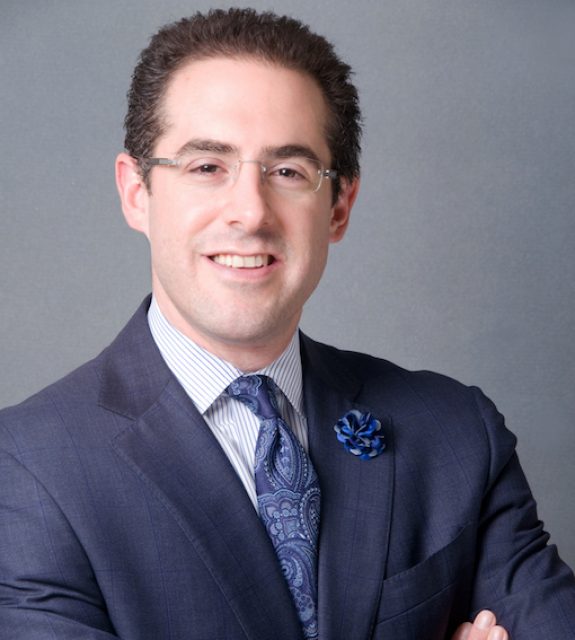Professor Dr. Bankole Johnson (2013 – 2019) served as The Dr. Irving J. Taylor Professor and Chair in the Department of Psychiatry, and Professor of Anatomy & Neurobiology, Medicine, Neurology, and Pharmacology at the University of Maryland School of Medicine. He directs all brain sciences across multiple departments at the School under the aegis of the Brain Science Research Consortium Unit, which grew in NIH funding from $21M-$35M from 2013-2018. Professor Johnson serves as the Director of the Clinical Neurobehavioral Center in Columbia. Professor Johnson’s primary area of research expertise is on ion channels, neuropsychopharmacology, molecular genetics, mathematics, neuroimaging, and medications for treating addictions. He holds several US and International patents in pharmacogenetics. Professor Johnson is a licensed physician and board-certified psychiatrist. He is the Principal Investigator on National Institutes of Health (NIH)-funded research studies from basic science to molecular and clinical studies, and has been funded continuously for over two decades.
Most of us have been lied to about what it means to be happy! Our pop culture has served to confuse us to the point of frustration that it would be hard to provide anyone with a simple explanation of what “happiness” truly is, and whether it is achievable. Furthermore, many would simply argue against any definition of a concept of “happiness” and simply abdicate by saying it is different for everyone. But is it really?
Having naturalized as an American, and now a dual citizen of both Britain and America, the question of what constitutes “happiness” has been particularly vexing. Distinct from any other country on earth, the USA declaration of Independence has a clear reference to the “pursuit of happiness” as an inalienable right. On the surface, it would appear to suggest that we all should be embroiled in some sort of chase to find happiness but this is far from the intended meaning. As Arthur Schlesinger points out in 1964, really dates to June 2, 1776, the Virginia Declaration of which actually refers to “pursuing and obtaining” of happiness. Essentially, for all of us as Americans, everyone has a right to be happy, it’s your right, so long as you do not contravene any laws. Furthermore, and of fundamental importance, it is an extrinsic quality without any reliance on any internal development of the individual.
But, I repeat, what does “happiness” actually mean?
 Photo Credit: Shutterstock
Photo Credit: Shutterstock
In three decades of practice as a psychiatrist, I never thought I would be looking up the meaning of “happiness”. Nevertheless, I reached out to several dictionaries, including the Oxford English Dictionary, which ascribes happiness to a condition of possessing good luck or fortune in life or in a particular affair. Or contentment or pleasure in one’s situation or being successful. In short, every modern definition of happiness you turn to nowadays is laden with the connotation of success, usually a financial success. Taken to its conclusion, do we all have an inalienable right to be lucky, fortunate, or have a lot of money? Are all of us as Americans guaranteed all of that as a right? So, if we do not possess that, does that not immediately imply, by definition, that we are unhappy. Indeed, this problem of definition of “happiness” is compounded by the fact that its opposite, that is being unhappy, is only really defined as being the opposite of being happy.
You might now begin to wonder why this column devoted to promoting mental wellness is vexed by defining “happiness”. Simply, because it should, arguably, be a goal of optimizing mental wellness.
Moreover, almost the entire field of modern psychiatry and psychology has completely ignored any approach or method to approximate to what it would mean to be truly happy. Indeed, those specialties in traditional form would eschew such an attempt and relegate such thoughts to an unscientific process akin to shamanism.
If we all have been mostly lied to by the modern definition of happiness, especially in our country, which would doom the majority to unhappiness, has anyone actually tried to get this right?
Let’s journey back over 2,000 years to the time of Socrates (469 - 399 BC). Socrates is credited with being the philosopher who did the fundamental work on “happiness” and was noted to have faced his own death cheerfully having been sentenced to drink hemlock (a poison) for “corrupting the youth”. So, way back then, all this really was taken as a life and death struggle, just as it is today.
I shall condense, and perhaps oversimplify, the teachings of Socrates here to illustrate my point pertaining to mental wellness. The tenements of Socrates' concept of happiness relate to three main domains: Euthydemus; The Symposium, and perhaps most famous of all, The Republic.
Euthydemus acknowledges that happiness is a common desire but can only be obtained by “unconditional good” and is intrinsic, not extrinsic. That is, striving to be the best one can be is a core component of being happy. Extrinsic fortune is neither good or bad; just related to how it is used. In terms of mental wellness, this concept would relate to teaching proportionality and balance.
In The Symposium, the principle concept is driven by Eros, the god of love and desire. But this is not just sexual desire but a force for goodness and bring together our male and female parts in each individual. Thus, whilst sexual pleasure can be gratifying, it is the unity of purpose that creates beauty and the feeling of true happiness. In terms of mental wellness, it relates to internal development towards an education consisting of seeking internal harmony or some would say peace of mind that can be brought about by life-coaching, meditation, and other holistic techniques. To go further, fusing all of these concepts with our technology that can increase awareness such as hyperbaric oxygen treatment is the unity that drives a desire towards wholesomeness, which is at the core of being happy.
In the Republic, Plato’s epiphany, which I have had on my shelf for over 40 years, this complex tome seems to boil down to understanding that harmony is essential to health. Whilst in that text the reference is to “psychic harmony”, this, I propose relates to bringing the entire body into a healthy balance to reduce frustration, stress, and anxiety. If you have been following my interpretation of this text in our modern world, it means that our mind and body cannot be healthy if not in balance or if parts of it are in conflict with the other. To pursue this further, in a modern approach to mental wellness this means that there needs to be an emphasis on physical health, even optimizing beauty, with the goal of achieving greater emotional intelligence. Indeed, the philosopher Epicurus writing centuries after Socrates goes further to describe happiness as not being the simple absence of pain. Happiness due to the absence of pain is fleeting, dependent, and relative, and known as positive happiness; in contrast, negative happiness would be a state of nondependent or nonquantifiable pleasure, which some would say is akin to nirvana. Basically, with no introspection or growth there can be no true happiness. As a case in point, taking mind-altering drugs cannot bring true happiness, as it is “relative” and quantifiable, with the opposite sensation of the “crash” on stopping drug use, which thrown the mind and body off balance.
So, I ask again, are we all condemned to the “pursuit of happiness” in its raw form, which sounds ultimately frustrating and unappealing? Indeed, is this the real tragedy of our modern world that we feel an emptiness and crave or yearn to be happy and fret because it never seems to happen? In other words, is this the insatiable monster that can leave us tired, frustrated, unfulfilled, and just not ready for “one more thing” to stress us out? Surely, if you have been following my arguments here, you will detect that I do not think it has to be so, and there is a way to change the narrative to result in a different outcome.
 Photo Credit: Shutterstock
Photo Credit: Shutterstock
Now, what does all this mean for the promotion of mental wellness and our work at Privée Clinics? Fundamentally, it means that our approach is to try and find everyone who comes to see us some “happiness” and that requires a complete understanding from both the physical and mental standpoint. It means that all our work points towards “growing” each individual through personal knowledge, teaching, and optimization. Finally, it means that at its core, our work is integrative, and a union between health, wellness, and beauty in all its forms. For those who come to Privée Clinics, it means that the individual will need to be an active and engaged participant to get the full and wholesome benefit of everything on offer. In my new book, Six Rings (https://sixringsbooks.com), I take up some of these concepts through allegorical stories following practitioner-client interactions and experiences. If you have been following these stories, you would have learned that the central character, Bastian, mentions three intrinsic “gifts” essential for happiness. First, he remarks on the need to practice calming the mind in the last 10 min of every hour. Those 10 minutes at the end of every hour is your “gift” to yourself, to focus and center yourself. Since most people find this difficult to do, the mental exercise that is suggested by Bastian is to try and listen to your own heartbeat. Since this ability was lost to us as babies, it is the effort of focus that takes us to the place of inner peace and empties the mind. Second, he extolls the virtues of gratitude, and using each day to build a bountiful store of this “gift”, and third, the “gift” of being able to accept unconditional love (not simply give it) but to be able to appreciate that for in all its different forms. It is not the extrinsic act of being loved that is important but the intrinsic “gift” of being able to accept and appreciate it.
So, the next time someone asks you - Do you feel happy? Or, are you happy? You know exactly what to say!

References and further reading:
1. https://www.pursuit-of-happiness.org/history-of-happiness/socrates/
2. https://news.emory.edu/stories/2014/06/er_pursuit_of_happiness/campus.html
3. https://www.oed.com/viewdictionaryentry/Entry/84070
For more information, visit Dr. Bankole Johnson's social media:
























